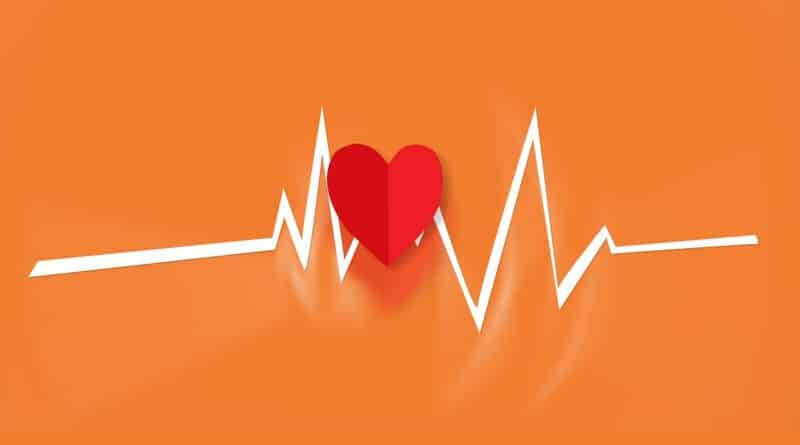8 Food Items That Are Horrible for Your Heart Health
Did you know that cheese and butter can increase the risk of gallstones? Or that shellfish can make you prone to bladder infections? Shocked? So was I, but it’s true! This information might be surprising, but there are food items that may negatively affect your heart health.
It should comes as no surprise that heart health is not a concern to most Americans. After all, do you see what the American diet looks like? Highly processed junk. Fast food places have lines that wrap around the buildings. And heart disease kills way too many people each year and the condition can be prevented.
In this article, we will talk about different food items that are not good for your heart health.
Disclaimer: This article is for informational purposes only. It is not meant to treat or diagnose any condition. Speak with your healthcare professional before making any changes to your nutrition plan to ensure it is right for your current health status and situation.
What Contributes to Heart Disease?

Heart disease, also known as cardiovascular disease, encompasses a range of conditions that affect heart health. Several factors contribute to the development of heart disease. It’s often a complex interplay of genetic, environmental, and lifestyle factors. Here are some key contributors:
- Unhealthy Diet: A diet high in saturated and trans fats, cholesterol, sodium, and added sugars can contribute to the development of heart disease. Consuming too much processed food, red meat, and sugary beverages can negatively impact heart health.
- Physical Inactivity: Lack of regular physical activity is a significant risk factor for heart disease. Exercise helps maintain a healthy weight, lowers blood pressure, and improves overall cardiovascular health.
- Smoking: Tobacco smoke contains chemicals that can damage blood vessels and heart tissue. Smoking is a major risk factor for heart disease and can increase the likelihood of atherosclerosis (hardening of the arteries), blood clots, and other cardiovascular issues.
- Excessive Alcohol Consumption: Heavy alcohol consumption can contribute to high blood pressure, heart failure, and can also lead to other cardiovascular issues. Moderation is key when it comes to alcohol consumption.
- Obesity: Being overweight or obese is a significant risk factor for heart disease. It is often associated with conditions like high blood pressure, high cholesterol levels, and diabetes, all of which contribute to cardiovascular problems.
- High Blood Pressure (Hypertension): Elevated blood pressure puts extra strain on the heart and blood vessels, increasing the risk of heart disease. Hypertension is often called the “silent killer” because it may not cause noticeable symptoms.
- High Cholesterol: Elevated levels of LDL (low-density lipoprotein) cholesterol, often referred to as “bad” cholesterol, can lead to the buildup of plaques in the arteries, narrowing them and restricting blood flow to the heart.
- Diabetes: People with diabetes are at a higher risk of developing heart disease. Uncontrolled blood sugar levels can damage blood vessels over time, contributing to cardiovascular complications.
- Genetics: Family history and genetics can play a role in the development of heart disease. If close family members have had heart disease, there may be a higher risk.
- Age: Aging is a natural risk factor for heart disease. As people get older, the risk of developing cardiovascular issues increases.
It’s important to note that many of these risk factors for your heart health are modifiable through lifestyle changes. Adopting a healthy diet, engaging in regular physical activity, avoiding smoking, and moderating alcohol intake can significantly reduce the risk of heart disease and improve your heart health. Regular check-ups with healthcare professionals are essential for monitoring and managing risk factors.
What Are the 4 Types of Heart Disease?

Heart disease is a broad term that encompasses various conditions affecting the heart. Here are four common types of heart disease:
- Coronary Artery Disease (CAD):
- Description: CAD is the most common type of heart disease. It occurs when the blood vessels (coronary arteries) that supply blood to the heart muscle become narrowed or blocked due to the buildup of cholesterol and other substances, forming plaques. This can lead to reduced blood flow to the heart muscle, causing chest pain (angina) or heart attacks.
- Risk Factors: High blood pressure, high cholesterol, smoking, diabetes, and a family history of heart disease are common risk factors for CAD.
- Heart Failure:
- Description: Heart failure is a condition in which the heart is unable to pump blood effectively, leading to inadequate blood flow to meet the body’s needs. It can result from conditions such as coronary artery disease, hypertension, or damage to the heart muscle (e.g., from a heart attack).
- Symptoms: Shortness of breath, fatigue, swelling in the legs, and fluid retention are common symptoms of heart failure.
- Arrhythmias:
- Description: Arrhythmias are irregular heartbeats, where the heart may beat too fast, too slow, or with an irregular rhythm. This can disrupt the normal pumping of blood, affecting the heart’s efficiency.
- Types: Atrial fibrillation, atrial flutter, bradycardia, and tachycardia are examples of different arrhythmias.
- Symptoms: Palpitations, dizziness, fainting, and chest discomfort are common symptoms of arrhythmias.
- Valvular Heart Disease:
- Description: Valvular heart disease involves problems with the heart valves, which regulate the flow of blood through the heart. Valves can be affected by conditions such as stenosis (narrowing), regurgitation (leakage), or prolapse.
- Types: Aortic stenosis, mitral regurgitation, and mitral valve prolapse are examples of valvular heart diseases.
- Symptoms: Symptoms may include chest pain, fatigue, shortness of breath, and palpitations.
Heart Health and Heart Disease is a Major Issue
Heart disease is one of the leading causes of death across the globe. Poor heart health can be due to various factors like smoking, age, heredity, and many other diseases and conditions. However, nutrition is one of the leading factors that can impact the risk of heart disease.
Related Article: Dr. Jared Green: Having a Heart to Heart About Health and Fitness

Knowing which food items to eliminate from your nutrition plan is one of the best ways to boost your overall heart health.
8 Food Items You Should Avoid to Maintain Heart Health
You need to be very thoughtful when it comes to your heart health. The food items that you include not only have the power to boost your health but could also affect your health negatively. In short, the food items you choose can either make or break your heart health.
Listed below are the eight worst foods for your heart health that you should try to avoid.
1. Processed Meat
Hot dogs, sausage, pepperoni… Of course, processed food is delicious, but it can put you at risk of heart disease. It is because these food items contain saturated fat, plus their preparation requires a lot of sodium, which can ultimately lead to high blood pressure, which leads us directly into the next food item.
2. Foods High in Sodium
When it comes to high blood pressure and heart disease, sodium is one of the most important determinants. There’s a relationship between sodium and increases in blood pressure. Excessive sodium levels in your nutrition can damage heart health and put you at a higher risk of heart disease and strokes.
3. Alcohol
Drinking in moderation won’t harm you unless you have high blood pressure. Excessive consumption of alcoholic beverages can increase the risk of heart disease and decrease your overall heart health. Additionally, alcohol contains a lot of calories that can lead to weight gain, which can then cause heart disease.
4. Butter
Butter contains saturated fat that can increase your cholesterol level and lead to heart disease. So, if you already have high cholesterol levels, it is better to swap butter with olive oil or oil that contains heart-healthy fats.
Click here to continue reading…


*Disclosure: This article may contain affiliate links or ads, which means we earn a small commission at no extra cost to you if you make a purchase through these links. These commissions help support the operation and maintenance of our website, allowing us to continue producing free valuable content. Your support is genuinely appreciated, whether you choose to use our links or not. Thank you for being a part of our community and enjoying our content.
PLEASE CONSIDER SHARING THIS ON YOUR SOCIAL MEDIA TO HELP OTHERS LEARN MORE ABOUT THIS TOPIC. SIMPLY CLICK BELOW!

